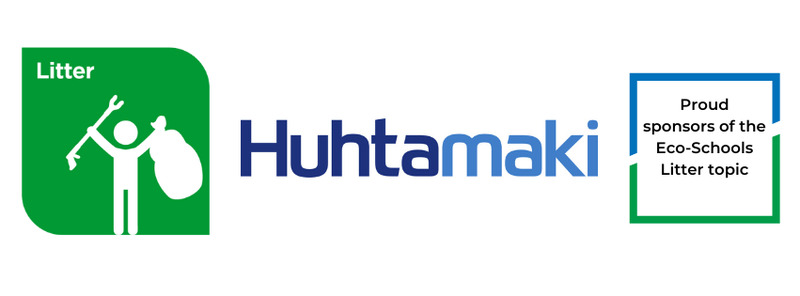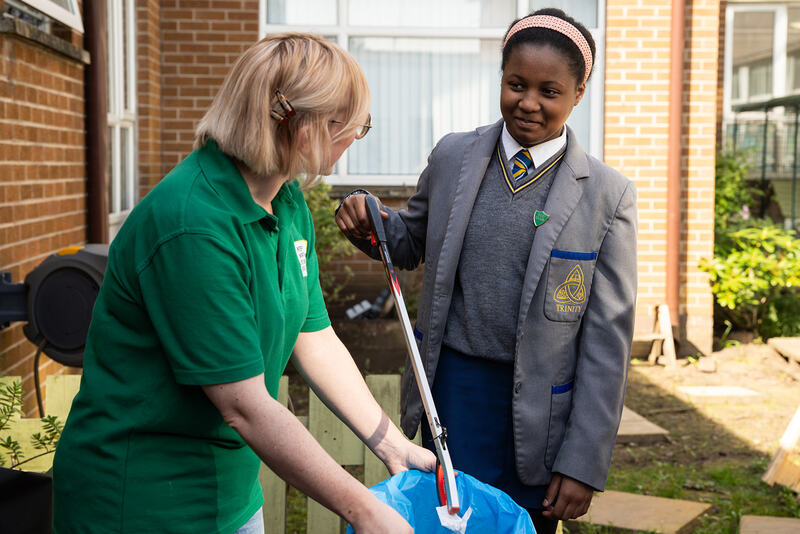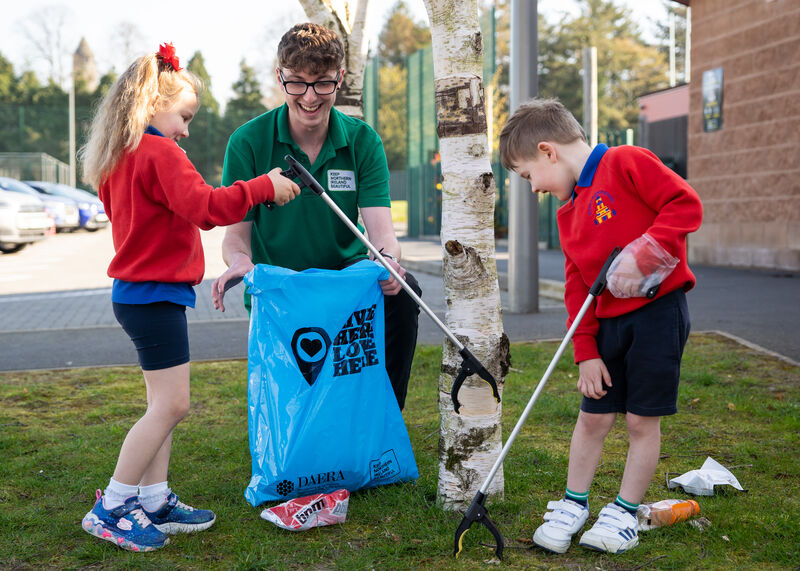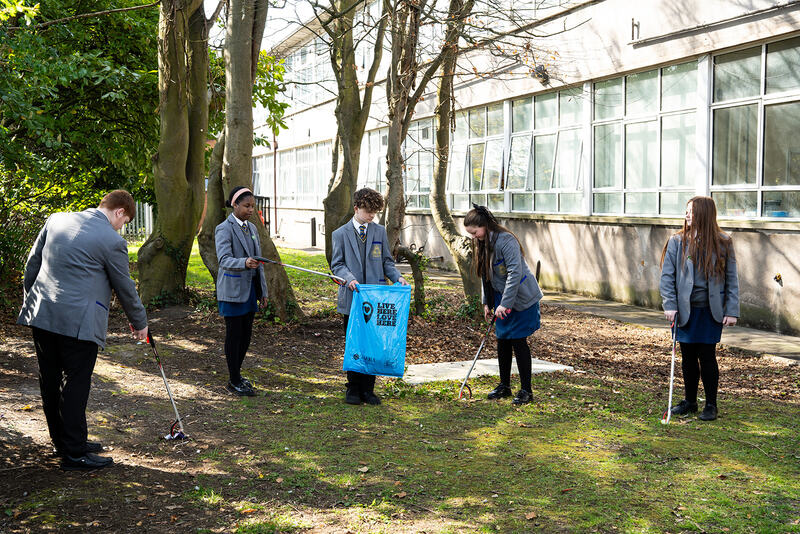Litter

Huhtamaki is a leading global provider of sustainable packaging solutions for consumers around the world. Huhtamaki has over 100 years of history employing around 18,000 employees operating in 36 countries and 101 locations around the world. The Huhtamaki Lurgan site produces Fiber Egg Cartons, Cup Carriers and Lids, and is based in Dollingstown, Co. Armagh.
Why It Matters in Schools
Litter is a common issue in schools and can:
-
Lead to complaints from locals
-
Discourage visitors
-
Affect student and staff morale
-
Be hazardous (e.g. broken glass)
-
Result in fines of up to £2,500 daily for schools
Even though most people know littering is wrong, research shows that children—especially over 12—often litter without guilt. They are more likely to dispose of rubbish properly when supervised.
Tip: Teens respond better to the word “rubbish” than “litter,” which can sound preachy.

Getting Started
Litter is a popular starting point for Eco-Schools because:
-
It’s highly visible and easily understood
-
Tackling it improves the school’s image
-
It involves the whole school community
Action Plan Ideas:
-
Raise awareness in classes and assemblies
-
Appoint litter monitors
-
Add or reposition bins in problem areas

Campaigns & Resources

Wrigley Litter Less Campaign: A global project promoting long-term litter reduction. Email eco-
-
Big Spring Clean: Join the Big Spring Clean campaign
Important Note: Balloon & Lantern Releases
Balloon and Chinese lantern releases create long-lasting litter and harm wildlife. Balloons can be mistaken for food by marine animals, causing death, and strings can entangle birds.
Eco-Schools NI considers balloon releases a form of mass littering and they may risk your Green Flag status.

